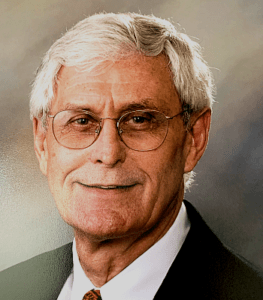 Self-care has always been important for the physical, mental, emotional and spiritual well-being of clergy. Amid a global pandemic and its immediate and long-term repercussions, consider the following reminders for pastors, other ministers and all caregivers.
Self-care has always been important for the physical, mental, emotional and spiritual well-being of clergy. Amid a global pandemic and its immediate and long-term repercussions, consider the following reminders for pastors, other ministers and all caregivers.
1. Grief and stress. Ministering “in isolation” from your flock wasn’t in your ministry plan for the year. Worship, study and fellowship are all being reshaped and re-scripted because of the coronavirus epidemic. It’s vitally important to recognize and manage your own experiences of grief and stress. Acknowledge your feelings – including helplessness, dejection and sadness – and find a way to share them.
2. Compassion fatigue. The novel coronavirus crisis is creating a different and deeper kind of compassion fatigue. Among other demands, pastors and other ministers are spending more time than ever utilizing a different mode of communication, including technology tools that are unfamiliar to many of us.
Remember the three most common “clergy responses” to overextension: depression, hypersensitivity and compulsivity. Remember what you have undoubtedly preached to your congregants: that Jesus took time off from the crowds, his followers and his inner circle of 12 disciples.
Find ways to keep the emotional baggage confined to one room. Protect your spouse and your family. How? One, talk it out (with a colleague, counselor or therapist). Two, work it out (exercise at least five days a week). Three, write it out through daily reflection, prayer and journaling (see below).
3. Limitations. Learn to regularly set limits and boundaries for yourself and for those you love (and don’t expect them to understand how you feel). Boundaries remind us and reassure others that we will not abuse others or ourselves. Learn to “dump” your anger, frustration and helplessness in one of several “safe” venues (see below).
4. Expectations. Evaluate your “self-script” periodically. What are you requiring of yourself? Expectations, whether external or internal, are often unrealistic, but we have taught ourselves to believe some myths. (“I’m not sure I can do ministry this way.” “I bet everybody else is managing this better than I am.”)
Listen to the ways you are “putting yourself down” with negative self-talk. What are you most anxious about?
5. Rest. Establish blocks of time which you reserve for family and your own recovery, and then guard those times faithfully. Take breaks from talking, texting and working at your desk and/or laptop. Know your own signals for burnout and fatigue. These may include irritability, lack of concentration, loss of appetite, loss of interest, anxiety/panic, restlessness, anger/resentment, paralyzing stress, depression, emotional flight or other indicators.
6. Shared experiences. Join or create a small group of “virtual” kindred spirits with whom you may regularly share your frustrations, struggles and sadness as well as your celebrations and joys. Schedule and integrate a support system into your life. Find a common time to conference call or participate in a Zoom meeting or Google Hangout with at least three “safe people.” Jesus, after all, texted Lazarus and Mary in Bethany several times a day (insert your favorite emoji smiley face here).
7. Routine. Reserve two or three activities in your daily and weekly schedules that both take you away from your charge and also give you joy. Supply yourself some joy, so you’ll have some to give to others. Even in these days of social distancing, these might include reading for relaxation; enjoying an indoor hobby; walking, running or hiking; playing a game or working a jigsaw puzzle with your family; watching a movie (only at home of course); or working in your garden.
8. Prayer. Set aside moments for quiet, relaxation, perspective and validation of feelings through prayer. Take a few minutes twice a day to commune with your Maker. Ask for what you need and complain creatively. (The psalmists did.)
9. Listening to your life. Journal each day or several times a week. Write down how you feel (again, like many psalmists did). Record a personal concern or worry – just for you to read. Get past superficial issues and express your anxiety and fears. Express your anger over the pain, suffering and injustices of our time. God got angry over things that mattered.
10. Spiritual deserts and seasons of disbelief. Acknowledge dispassion and emptiness as recurring and normal events. (Elijah was depressed and found a cave to hide in.) If signs of depression persist, see a counselor – even if for now it has to be a virtual session.
11. Exercise. The body absorbs stress in many ways and needs regular renewal through stimulation, use and “engagement.” Exercise is a stress buster. Find a way to get your heart rate up, to “charge up” your temple in order to reduce emotional, mental and spiritual fatigue.
Finally, remember that we are all “learning as we go” amid this mysterious and frightening challenge that is unprecedented for most of us in America. Read the Scriptures a different way – reflectively, absorbingly. Note the varied crises it records – and the many experiences and assurances of God’s care.
Remember to pace yourself. And, as always, give yourself some grace.
Read more BNG news and opinion on this topic:
#intimeslikethese
